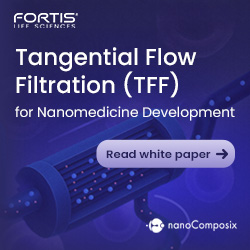Noramco & SPI Pharma Announce Availability of New Excipient Compatibility Study
Noramco and SPI Pharma recently announced they have completed work on an excipient compatibility study examining a range of options for the development of cannabidiol (CBD) solid oral dosage forms, including orally-disintegrating tablets (ODT), orally-disintegrating powders (ODP) and sublingual tablets (SLT). This study was part of a series of proof-of-concept (POC) exercises to enable the creation of finished drug products in patient-friendly dosage forms, which will be out-licensed to customers for immediate scale-up, registration, and market launch. This one-year old collaborative agreement between Noramco, a global leader in the manufacture and supply of controlled substance active pharmaceutical ingredients (APIs), and SPI Pharma, a global leader in the manufacture and supply of functional excipient platforms and the development and licensing of drug dossiers in unique dosage forms, is progressing rapidly. The companies have a phased development approach and they expect to offer the first generation of new formulations in late 2019 followed by full implementation of highly efficacious and patient-friendly dosage forms by 2020. Knowledge and experience gained during CBD dosage form development could be applied outside of the pharmaceutical sector to such areas as nutritional supplements, functional foods, beverage, personal care, and other consumer product group applications. Parties interested in reviewing the data or discussing potential licensing options for the finished CBD formulation(s) should contact Noramco or SPI Pharma.
Addressing a Market Pain Point & Opening Up Opportunity
According to Josh Hoerner, Managing Director & Senior Director, Innovation & Product Development for Noramco, the compatibility study should be a benefit to any company in the cannabinoid space that wants to accelerate a dosage form product to market. “Compatibility studies like this one are complex, expensive and labor-intensive. But even more important, they are time-consuming. Conducting them requires, at minimum, a Schedule 1 DEA license, access to a pure form of an API, and reliable, sensitive and selective analytical methodologies,” he said. “The high quality of work should be an asset to companies looking to develop finished dosage forms on their own to address unmet patient needs and achieve speed-to-market.”, he added. Hoerner went on to point out that at no time will Noramco or SPI Pharma market or sell finished drug dosage form with APIs.
Cannabidiol – particularly in solid dosage forms – is among a number of substances known to have low bioavailability due to the first pass effect, where much of the compound is metabolized in the digestive system prior to entry into the bloodstream. APIs with high first pass effect need a considerably higher drug loading than those that avoid first pass, like sublingual or parenteral doses. The recent study examined more than 75 samples of high-purity CBD with various inactive ingredients by stressing samples and measuring chemical decomposition over time to specifically address these challenges as part of the development strategy.
According to Sarath Chandar, Chief Scientific Officer of SPI Pharma, the goal of this proof-of-concept drug development plan is to deliver “ready-to-implement” patient-friendly drug formulations that provide convenience, compliance, and efficacy for CBD-based drugs. “These comprehensive formulation packages offer Noramco and SPI’s global customers the opportunity to achieve speed-to-market, a reduction in trial-and-error, product differentiation, life-cycle management through IP from both the API and delivery platforms, and critical technical/regulatory support”, Chandar said. “Our customers will benefit from the strong track record of success in 505b(2) and NDA application that this partnership brings” he added.
Noramco, headquartered in Wilmington, Delaware, is a leading North American producer of controlled substances bulk Active Pharmaceutical Ingredients (APIs) for the pharmaceutical industry. The company offers cannabinoids and other APIs for use in abuse prevention, attention deficit disorder, pain management, and addiction management. Established in 1979, Noramco maintains production and R&D facilities in Delaware and Georgia (USA); and Neuhausen, Switzerland; and accesses agricultural operations in Tasmania through an affiliate, Tasmanian Alkaloids. For more information, visit www.Noramco.com.
SPI Pharma, headquartered in Wilmington, Delaware, provides innovative solutions to global pharmaceutical and nutritional customers. Product lines include Antacid Actives, Excipients, Drug Delivery Platforms, Taste-Masking, and Vaccine Adjuvants. SPI Pharma specializes in drug development services, having participated in over 60 commercially launched and marketed drugs globally. Leveraging the backing of its parent company, Associated British Foods, and its sites in the US, France and India, SPI offers innovative products and solves the most challenging formulation problems efficiently, cost-effectively, and with a focus on delivering drug product differentiation.
Total Page Views: 2245









